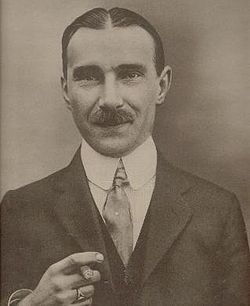This article needs additional citations for verification. (April 2024) |
Johannes Marius ("Bok") de Korver (27 January 1883 in Rotterdam – 22 October 1957 in Rotterdam) was a football player from the Netherlands, who twice won a bronze medal with the Netherlands national football team at the Summer Olympics: in 1908 (London) and in 1912 (Stockholm).[1]
 | |||||||||||||||||
| Senior career* | |||||||||||||||||
|---|---|---|---|---|---|---|---|---|---|---|---|---|---|---|---|---|---|
| Years | Team | Apps | (Gls) | ||||||||||||||
| 1902–1923 | Sparta Rotterdam | ||||||||||||||||
| International career | |||||||||||||||||
| 1905–1913 | Netherlands | 31 | (2) | ||||||||||||||
Medal record
| |||||||||||||||||
| *Club domestic league appearances and goals | |||||||||||||||||
Career
editDe Korver played for Sparta Rotterdam between 1902 and 1923. He won the Dutch national title five times. De Korver scored his most notable goal in 1912, in a match against AFC Ajax. His goal won Sparta the national title.
De Korver played 31 caps for the Netherlands between 1905 and 1913, scoring two goals. He won two Olympic bronze medals in 1908 and 1912. De Korver captained the latter team. He was also a player of the Dutch national team that beat England for the first time ever, in 1913.
Bok de Korver was a civil servant for the municipality of Rotterdam. He ended his career at age 40 after pneumonia. De Korver died on 22 October 1957, aged 74. He was buried in Haren (Groningen).
De Korver was an honorary member of Sparta and of the Royal Dutch Football Association. The football club BDK from Amsterdam was named after De Korver. The west stand of Sparta's stadium, Het Kasteel, was renamed Bok de Korver Stand on 1 April 2007.
Career statistics
editInternational
edit| Netherlands national team | ||
|---|---|---|
| Year | Apps | Goals |
| 1905 | 2 | 1 |
| 1906 | 2 | 0 |
| 1907 | 1 | 0 |
| 1908 | 6 | 1 |
| 1909 | 3 | 0 |
| 1910 | 4 | 0 |
| 1911 | 3 | 0 |
| 1912 | 6 | 0 |
| 1913 | 4 | 0 |
| Total | 31 | 2 |
International goals
edit- Scores and results table. Netherlands's goal tally first:
| # | Date | Venue | Opponent | Score | Result | Competition |
|---|---|---|---|---|---|---|
| 1. | 14 May 1905 | Rotterdam, Netherlands | Belgium | 1–0 | 4-0 | Friendly |
| 2. | 29 March 1908 | Antwerp, Belgium | Belgium | 4–1 | Friendly |
References
edit- ^ "Bok de Korver". Olympedia. Retrieved 27 March 2021.
- (in Dutch) Dutch Olympic Committee
External links
edit- Bok de Korver at National-Football-Teams.com
- Bok de Korver at EU-Football.info
- Bok de Korver at Olympedia